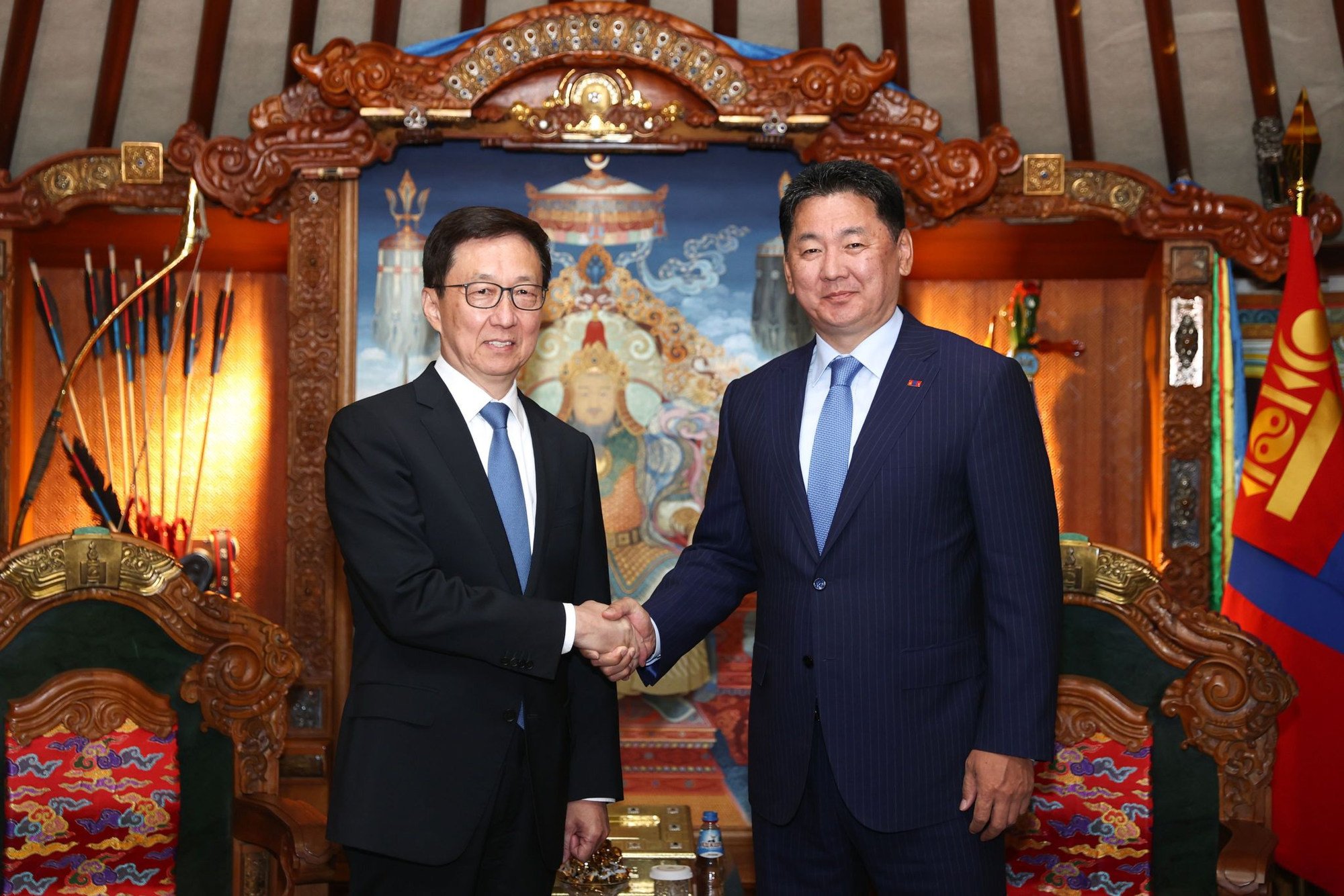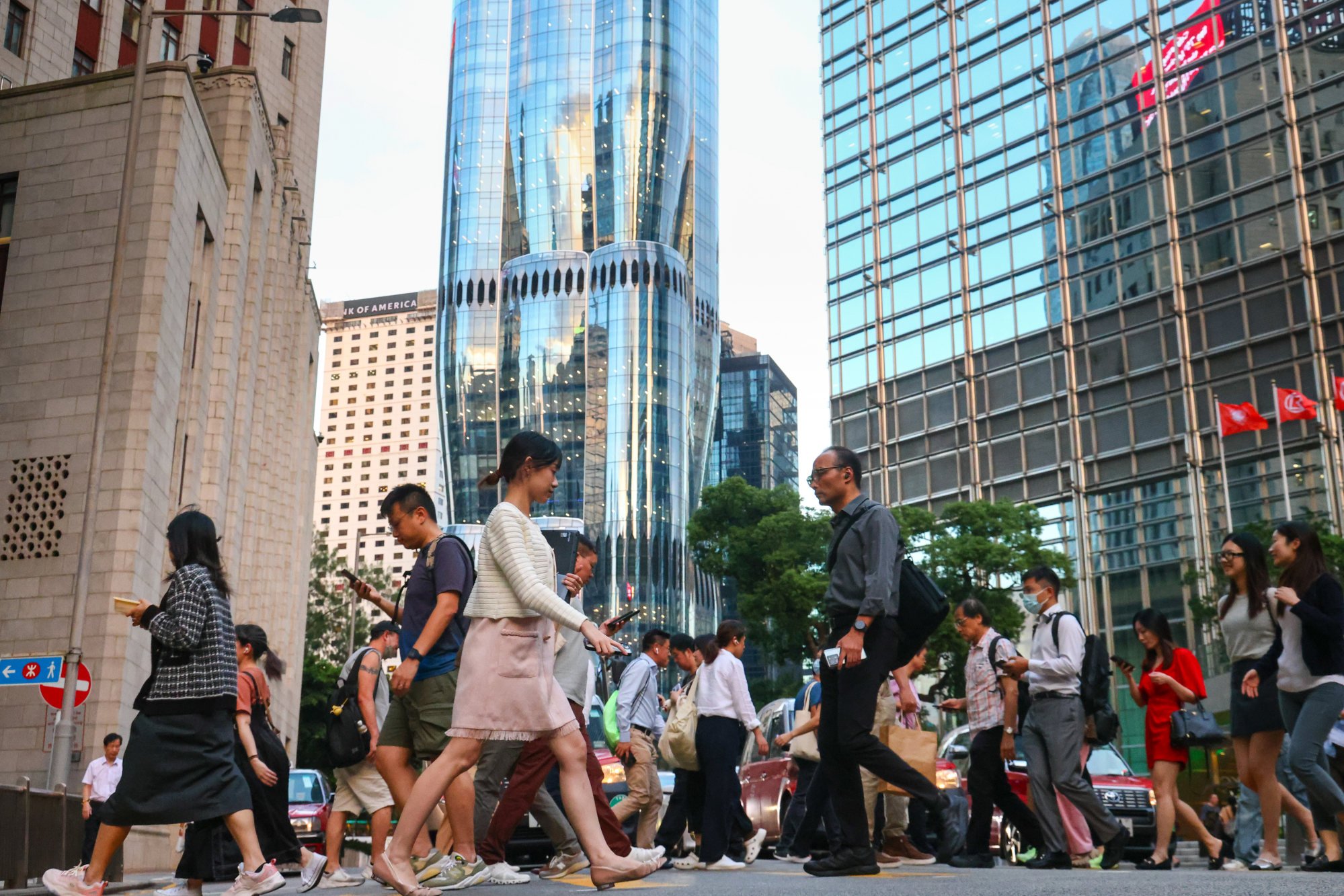Mongolia hopes to grow its business presence in Hong Kong and tap its experience as a global financial centre and logistics hub, the country’s top envoy in the city has said.
Aside from reviving a dormant business forum in the city next year, Consul General Khulan Onkhoon said she was pushing for dual stock market listings in the two jurisdictions.
Do you have questions about the biggest topics and trends from around the world? Get the answers with SCMP Knowledge, our new platform of curated content with explainers, FAQs, analyses and infographics brought to you by our award-winning team.
Teams of officials had also been visiting Hong Kong over the past year to learn from the city’s experience in logistics, infrastructure and medical services as Mongolia was grappling with problems related to rapid urbanisation.
Khulan, who previously worked in her country’s mining and investment sector, took over as her country’s top envoy in the city in August 2023. She said her first visit to Hong Kong was two decades ago.
China and Mongolia mark 75 years of bilateral relations this year and in September, Chinese Vice-President Han Zheng called for the two countries to deepen ties and expand cooperation.

Khulan told the Post in an exclusive interview that Hong Kong could play a significant role in strengthening cooperation between the two countries, especially in areas highlighted by Zheng, such as energy, connectivity and infrastructure.
“Of course, Hong Kong is one of the largest financial hubs around the globe, and it provides an opportunity for businesses to connect, to find their partners, and to establish mutually beneficial cooperation,” she said.
Mongolia’s mining companies and other firms were keen to source investment from Hong Kong to help their capital expansion, she said.
With its extensive mineral deposits, mining accounted for around 80 per cent of the country’s total exports, contributing about a quarter to its overall gross domestic product (GDP), according to a 2021 report by the World Bank.
Mongolian firms in the information and technology sector were also keen to bring their products to Hong Kong, and potentially access other markets through the city, Khulan said.
To foster connections between entrepreneurs and investors from both sides, the consulate was planning to revive the Invest Mongolia business forum in Hong Kong next year. It was last held before the Covid-19 pandemic.
Work was also ongoing to explore dual listings between the Hong Kong and Mongolian stock exchanges.
About 100 delegates from both jurisdictions met in Hong Kong last November to discuss the issue and opportunities in connecting Mongolia’s capital market with those in the Asia-Pacific region.
Khulan said negotiations were under way to establish a comprehensive double taxation agreement with Hong Kong, and this would create more opportunities for investors from both sides.
As of September, the city had such agreements with 51 jurisdictions to help individuals avoid being taxed on the same income in multiple places.
Mongolia embarked on a 10-year New Recovery Policy in 2021 to strengthen its economy and address issues such as urban infrastructure, trade logistics and renewable energy.
Ulaanbaatar, the capital, has been grappling with rapid urbanisation in recent years and now houses about half of the country’s 3.4 million people.
Khulan said the city was struggling with the consequences, including traffic congestion and increased demand for medical services.
A number of high-level delegations have visited Hong Kong in recent months to pick up best practices in areas such as public infrastructure, transport, medical services and logistics.

Khulan said Mongolia had ambitious plans to expand its railway network, and hoped to learn from Hong Kong.
“There’s much to learn from Hong Kong, as Hong Kong is one of the most densely populated cities around the globe,” she said.
“They visited Hong Kong to learn not only how to build, but most importantly, how to finance these projects.”
Human resources were critical in helping the country achieve its development goals and to this end, Khulan said, the consulate had been actively promoting Hong Kong’s universities to Mongolian students, in fields such as engineering.
More had begun coming, whereas previously only about three to five Mongolian students enrolled in Hong Kong universities each year.
This year, 68 Mongolians were studying in the city’s universities.
Lighter side
How has Hong Kong changed since your first visit?
Twenty years ago, it was quite a busy city, always moving. There were a lot of expats. It was very difficult to find seats in restaurants. Of course, I arrived after the pandemic and I can see that it has slowed down a little bit. But three days ago I went to Tsim Sha Tsui and saw such a crowd, and I had a feeling that Hong Kong is recovering.
Where do you like to take people when they visit the city?
The Ngong Ping 360 [cable car] and the Big Buddha. The Big Buddha has a holy relic of the Buddha, but they don’t promote it much. Mongolians know it, and Mongolians really like to go there to pray to the holy relic. It’s like a religious pilgrimage.
Do you have any favourite food or cuisine in Hong Kong?
I have travelled to so many countries, but I can say that Hong Kong food is the best. I can go to any random restaurant in Hong Kong and close my eyes and point to any random dish on the menu and it comes out very tasty. Maybe in another country I need to do my research, look at the ingredients, reviews, but in Hong Kong, I don’t need to do any of this.
More from South China Morning Post:
- Indonesian envoy says Hong Kong needs stronger branding to win over Muslim tourists
- Hong Kong, Brazil negotiating extradition deal to transfer drug traffickers from city: envoy
For the latest news from the South China Morning Post download our mobile app. Copyright 2024.





